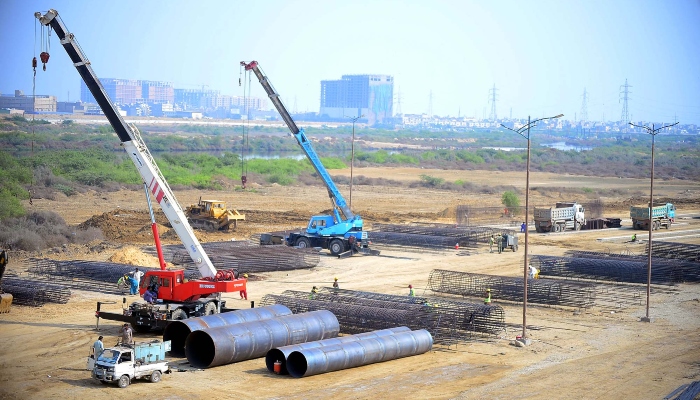
KARACHI: Karachi Mayor Murtaza Wahab on Thursday announced an allocation of Rs 2.1 billion to address pressing infrastructure issues in Korangi Industrial Area (KIA), News reported.
Speaking at the Korangi Association of Commerce and Industry (KATI), Wahab highlighted the importance of a collaborative approach between the government and industrialists to drive progress in Karachi.
He pointed out that although many parts of the city enjoy uninterrupted water supply, irregular bill payments have a negative financial impact on public services.
He highlighted the Sindh government’s efforts to improve water management through a pilot project to treat and recycle 500 million gallons of wastewater.
He also called for discussions with industrialists to resolve problems linked to the transfer of infrastructure.
During his speech, Wahab outlined the major ongoing development projects including the upcoming inauguration of the first phase of the Malir Expressway and the launch of the Yellow Line Bus Transit Project for Korangi and Landhi .
He promised completion of Baloch Colony Expressway within three months and stressed the urgency of resolving problems in Mehran town.
Wahab further revealed that the extension of the Jam Sadiq Bridge to eight lanes is expected to be completed by December 2025.
Responding to criticism over the local government tax on electricity bills, Wahab defended the initiative, highlighting its success in generating Rs228 million in just one month.
He assured that the revenues would be reinvested in the well-being and infrastructure of the city.
Highlighting the disparities in federal allocations, he questioned why Karachi, which contributes significantly to the country’s revenue, receives insufficient development funds compared to smaller regions such as Narowal.
KATI President Junaid Naqi spoke about the historical and economic importance of the city’s industrial sector, citing its role as Pakistan’s textile hub.
Despite a tax contribution of Rs 1,882 billion this year, Naqi lamented that only Rs 20 billion, or 4.3 percent, was allocated to the Karachi Metropolitan Corporation (KMC).
He also highlighted the challenges facing local industries, including dilapidated infrastructure, sewage problems and water shortages, which are exacerbated by dependence on the oil tanker mafia.
